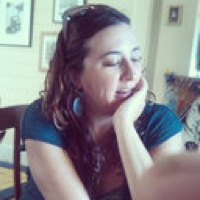Phoebe Everingham
Dr Phoebe Everingham is an early career researcher who has recently completed her PhD in Human Geography at the University of Newcastle Australia. Her doctorate draws on two cases in South America; a not for profit organisation; Arte del Mundo in Ecuador and a non-government organisation; Otra Cosa Network in Peru. She is passionate about shifting the industry and academic analyses away from neo-colonial development practices that stereotype host communities as ‘backward’ and needy’ towards mutual intercultural exchange and understanding. Her work challenges the ways in which critical social theory has shut down analysis of what is possible in volunteer tourism encounters, through analyses that frame volunteer tourism through predetermined normative outcomes, in turn reifying neoliberal and neo-colonial systems of power. Instead she reimagines embodied interactions and power as fluid and non-fixed to envisage the potentialities that arise through relational experiences. She is interested in the ambiguities of these encounters; these encounters can reify cultural difference but also disrupt and at times subvert the ways in which power is typically conceptualized. The emotional and affective dimensions of embodied encounters have the potential to transform spaces and add layers of complexity to academic analysis. She draws on examples from her fieldwork such as the languaging of Spanglish, to demonstrate the ‘already happening’ intercultural dialogues based on empathy and respect for different others. In line with the research agenda of WOV, her work is grounded in the body, through attention to lived experiences, emotions and affect, to demonstrate the possibilities that are present in the everyday. Phoebe turns to decolonial perspectives to open up the parameters of legibility in imagining futures of the-not-yet become, to envisage and prefigure futures that can be otherwise.
Phoebe is now broadening her research to analyse the sexual dimensions of embodied encounters in volunteer tourism, particularly sexual encounters which cross racial and economic differences. She is interested in the transformative aspects of these relationships. She is also involved in research about the embodied affective dimensions of the Brazilian martial art/dance capoeira and how this translates across cultures. She frames capoeira as a decolonial pedagogy, which disrupts linear neo-liberal temporalities that privilege input/output managerialism models of teaching. She aims to use this research to inform educators about the possibilities for learning and teaching across and through cultural difference.
Speaking Spanglish: Embodying linguistic (b)orderlands in volunteer tourism. Emotion, Space and Society 2018
https://doi.org/10.1016/j.emospa.2018.04.001
https://www.sciencedirect.com/science/article/pii/S1755458617301299
Hopeful possibilities in spaces of ‘the-not-yet become’: relational encounters in volunteer tourism. Tourism Geographies. 2016 Vol 18. (5) 520-538.
or
http://dx.doi.org/10.1080/14616688.2016.1220974
Intercultural exchange and mutuality in volunteer tourism: The case of intercambio in Ecuador. Tourist Studies 2015, Vol. 15(2) 175–190 http://journals.sagepub.com/doi/abs/10.1177/1468797614563435
Photos from fieldwork
Children engaged in creative activities at Arte del Mundo Ecuador
Helping the local community of Huanchaco Peru build new classrooms for a local school – money for the classrooms was raised by an English volunteer. Children playing under a tap installed by volunteers at a local skate ramp.


